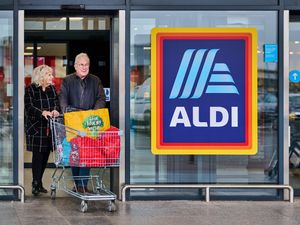Row over launch of 'fresh ale' amid concerns it could 'confuse drinkers'
A row has broken out over Wolverhampton-based Carlsberg Marston’s Brewing Company introducing a new 'fresh ale' category.
It is being trialled with Wainwrights Gold, Wainwrights Ambe and Hobgoblin IPA.
The 30-litre keg beers will have a shelf life of 14 days and will be served through handpumps.
The Campaign for Real Ale says it risks confusing drinkers about cask conditioned beers.
It says beer drinkers widely understand handpumps as usually being exclusively used for cask conditioned beer.
Keg beer is not a 'live' beer, in that once it leaves the brewery it contains no viable yeast, and does not undergo further conditioning, unlike cask-conditioned beers which continue to develop flavour and carbonation in the pub cellar.
CMBC has indicated that, following feedback from CAMRA, it will label fresh ale served through handpumps as brewery conditioned beer, but CAMRA still fears this will still confuse customers and erode their long-held understanding that only cask beer is served in this way.
The campaign is also concerned that CMBC’s plan will reduce choice to consumers and by taking up handpump space elbow out genuine cask beers produced by smaller, independent brewers.
CAMRA fully intends to enforce its long-standing policy that beer drinkers should not be misled at the point of dispense through the sale of non-live, non-cask beer through handpumps.
CAMRA national director and chairman of the real ale, cider and perry campaigns committee, Gillian Hough said: “It’s baffling why CMBC feels the need to serve a keg beer through cask ale handpumps in the first place, when it would seem to be simpler and more honest to simply serve it through keg taps, as with all other keg products.
“It would be even better if this company, despite claiming to be incredibly proud to be a leading brewer of cask ale, actually invested in producing new cask ales and supporting its existing beers. It’s particularly ironic that instead it has spent time closing the historic breweries in their portfolio and now wants to cash in on that cask heritage with a keg product which hijacks the handpump.
“Even with additional labelling, our fear is customers – especially those who perhaps don’t understand a term like “brewery conditioned” or don’t notice the small print – will be confused. It also seems likely that over time this potentially misleading approach will erode the image of the iconic beer handpump as a clear symbol of cask conditioned beer.
“We believe that beer drinkers should be fully informed at the point of dispense and we will continue to condemn dispense practices that seek to mislead the consumer, particularly by selling non-live, non-cask beers through cask beer handpumps.
“CAMRA calls on CMBC to either provide a genuinely live and fresh beer to be served through handpumps, to give the drinker what they expect and want, or to be honest and serve this so-called “fresh beer” through keg taps. "
CMBC says the launch of ‘fresh ale’ is a bid to begin reinvigorating Britain’s beer and pub culture.
CMBC vice president of marketing John Clements says that fresh ale goes through a secondary fermentation but, unlike cask, it is done in the brewery and yeast is then filered out, but it remains an unpasteurised product.
It still has a shorter shelf life than keg ale, but it extends the shelf life.
Mr Clements says it is a chance for ale drinkers to get an ale in pubs that don’t do cask, but also a chance for lager drinkers to reappraise ale where they’ve perhaps drifted out of cask and gone into world lager.
He said: “We’ve seen cask have some challenges over recent years and, actually, in the last four years, we’ve navigated three big storms, both in retail, and for brewers. We all know what they are: Covid, the war in Ukraine and hyperinflation, then the cost-of-living crisis — which has actually impacted the ale category more than it has impacted lager. Pub visits happened less, and so cask ale suffered. We estimate that 7,000 handpulls have disappeared from bars over the last three to four years. Increasingly, publicans are telling us that they don’t have the throughputs to warrant it being on the bar.”
Mr Clements says CMBC will continue to invest in and champion cask ale and continue to bring new beers into the market
“We don’t want to replace cask ale. We want to preserve cask ale as much as possible. And that message has to be loud and clear." he added.
The hope for fresh ale is for more people to try it and then go on to try cask ale.
CMBC will pick pubs that might have had low throughputs for fesh ale.
The category has received the backing of The British Beer and Pub Association'schief executive Emma McClarkin, who said: “Britain’s brewers are committed to innovation and continuing to provide their customers with the best beer in the world. Cask ale is an iconic part of British culture, and CMBC’s fresh ale is a great example of the fusion of tradition and transformation that our brewers are passionate about creating.”



